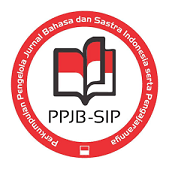Dampak Pembelajaran Jarak Jauh Terhadap Aspek Kognitif, Afektif, dan Psikomotor Bagi Siswa Sekolah Menengah Atas (SMA)
DOI:
https://doi.org/10.23887/jjpbs.v11i3.31476Abstract
Penelitian ini dilakukan untuk mengetahui dampak yang dialami oleh siswa sekolah menengah atas (SMA) terhadap aspek kognitif, afektif, dan psikomotor selama pembelajaran jarak jauh atau pembelajaran daring diberlakukan. Selain dampak yang dirasakan, terdapat pula kendala yang dihadapi oleh siswa menengah atas (SMA) terhadap penerapan pembelajaran jarak jauh. Rancangan penelitian ini menggunakan pendekatan deskrptif kualitatif dari hasil kuesioner melalui google form. Kuesioner diajukan kepada siswa menengah atas mulai dari kelas X, XI, dan dan kelas XII. Jumlah responden pada penelitian ini sebanyak 20 responden. Adapun metode yang digunakan berupa metode kualitatif. Dari hasil penelitian bahwa 80% dari responden mengikuti Pembelajaran jarah jauh dan 20% responden jarang mengikuti proses pembelajaran jarak jauh. Hal tersebut dialami oleh siswa baik jurusan IPA maupun IPS. 50% dari responden mengalami perubahan terhadap aspek kognitif, 45% dari responden mengalami perubahan aspek psikomotor dan 60% dari responden mengalami perubahan terhadap aspek afektif.
Kata Kunci: Pembelajaran Jarak Jauh; dampak PJJ; kendala PJJ.
Downloads
Published
Issue
Section
License
Authors who publish with the Jurnal Pendidikan Bahasa dan Sastra Indonesia Undiksha agree to the following terms:- Authors retain copyright and grant the journal the right of first publication with the work simultaneously licensed under a Creative Commons Attribution License (CC BY-SA 4.0) that allows others to share the work with an acknowledgment of the work's authorship and initial publication in this journal
- Authors are able to enter into separate, additional contractual arrangements for the non-exclusive distribution of the journal's published version of the work (e.g., post it to an institutional repository or publish it in a book), with an acknowledgment of its initial publication in this journal.
- Authors are permitted and encouraged to post their work online (e.g., in institutional repositories or on their website) prior to and during the submission process, as it can lead to productive exchanges, as well as earlier and greater citation of published work. (See The Effect of Open Access)







